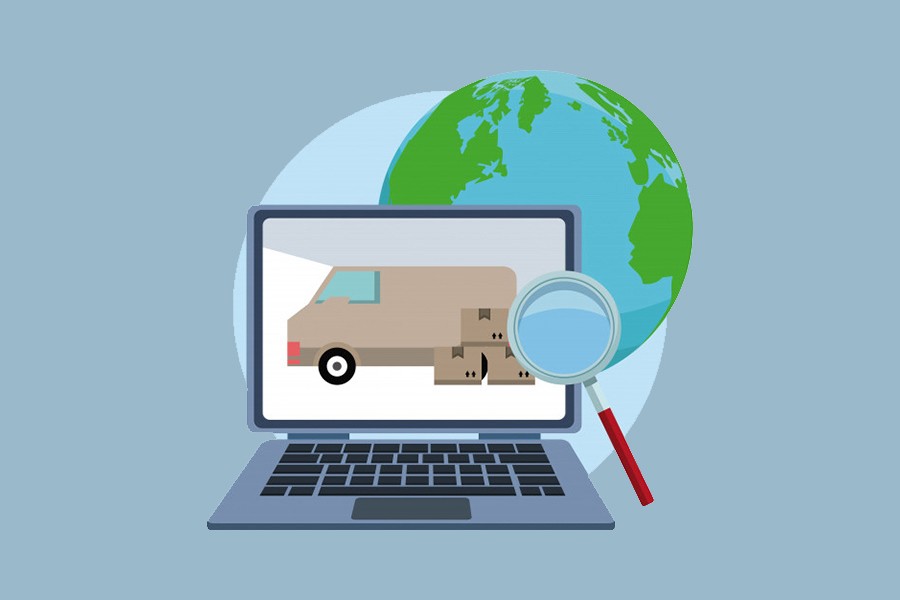The electronic government procurement (e-GP) - a digital platform for public procurement -- has remained operational during the COVID pandemic. The Central Procurement Technical Unit (CPTU) of the Implementation Monitoring and Evaluation Division (IMED) of the Ministry of Planning launched the e-GP on a pilot basis in 2011 under the e-GP Guidelines with an aim to bring the entire process and contract management of public procurement under digital system.
Building on successful execution in four large Procuring Agencies (PAs), the implementation of e-GP started in 2012 in various government offices.
The total number of PAs in the country is 1362. As of December 10, 2020, a total of 1351 PAs got registered with the e-GP system while the number of registered tenderers stood at 81,245.
With the introduction of e-GP, hassles in submitting tenders have ended as tenderers now can submit tenders online from home which saves time and cost.
The e-GP system has reduced costs for use of paper and other expenses by 6.9 per cent. An amount of 1.1 billion US dollars was saved in government procurement in FY 2018-19 alone. This was revealed in a recent survey conducted by the World Bank.
A total of 62 per cent of expenditures on public procurement in FY 2019-20 was conducted through e-GP. Tender processing time has come down from to 58 in 2019-20 fiscal from100 days in 2016-17.
The CPTU is currently implementing a project on digitisation of public procurement. The project that started in 2017 will be completed in December 2023.
According to a World Bank study, upon completion, the project will reduce 497 million kilometers of travels resulting in reduction of emission of 1 lakh 53 thousand 559 tons of carbon dioxide. The implementation of the project will save 10,287 million pages of paper.
Meanwhile, e-GP continued to operate uninterruptedly during the Covid pandemic from March 2020 to December 10, 2020. During this time, CPTU's Helpdesk and e-GP system remained open 24 hours a day and seven days a week, according to e-GP activities shown in the system.
Recent data released on performance of public procurement and e-GP shows that amid the pandemic since March 1, 2020 to December 10, 2020, the authorities have been able to accomplish significant volume of work in conducting public procurement through digital system installed by establishing a dedicated network connecting most of the stakeholders.
During the period, the number of contracts awarded to competent tenderers has posted a sharp rise to 62,074 in 2020 involving Tk. 545.0 billion. Tender invitation during the period was 69,477 with a value of Tk. 737.30 billion.
A total of 71,437 tenders worth Tk. 746.40 billion were opened during the ten-month period while 2.12 million tenders were received from 44,849 tenderers.
A total of 70,573 tenders valued at Tk 738.10 billion were evaluated during the period under review.
Procuring entities are greatly relieved of all hassles regarding tender processing and contract awarding through the e-GP system. This is a great achievement of the government in its efforts to build a Digital Bangladesh.
The credit goes to procuring entities which are implementing e-GP. The CPTU has been implementing Digitizing Implementation and Public Procurement Project with support from the World Bank. Under the project e-GP system is being enhanced and institutionalised.
Prime Minister Sheikh Hasina formally launched the e-GP Portal on June 2, 2011 as part of digitising public services.
In 2011, online tendering was piloted in 4 large procuring agencies such as Local Government Engineering Department, Roads and Highways Department, Bangladesh Water Development Board and Rural Electrification Board. Building on the success of piloting, the CPTU started implementing e-GP across the government procuring agencies from 2012.
The Central Procurement Technical Unit (CPTU) of Implementation Monitoring and Evaluation Division launched a Citizen Portal (citizen.cptu.gov.bd) on Aug 26, 2020 that will allow citizens to access public procurement data.
The interactive web portal aims to enhance transparency and accountability in the process of public procurement by providing relevant information in line with the Right to Information Act.
About 80 per cent of Annual Development Programme and 45 per cent of the total national budget are spent on public procurement.
The electronic contract management system (e-CMS) is being piloted on three contracts of Local Government Engineering Department (LGED) and two of Roads and Highways Department (RHD). The CPTU has developed a tenderers' database and taken up preparation for introducing international tender invitation through e-GP.
It has developed the citizen portal under the Digitising Implementation Monitoring and Public Procurement Project (DIMAPPP) supported by the World Bank.
From the portal, citizens can get information about country-wide procurement of goods, works and services. The portal also allows customisation or search function through features as sorting or filtering as well as graphically present data. They can remain updated on different steps of procurement in their localities as well. In addition, citizens can also interact through citizen blogs and CPTU social media that are connected with this portal. Through the platform, citizens can raise their voice and put their observations on public procurement.
Policy makers, officials of procuring entities, experts, researchers and others will be able to download procurement data following the Open Contracting Data Standard (OCDS) to conduct analysis and research work to understand procurement performance.
Shafiul Alam is a senior journalist and communication specialist.


